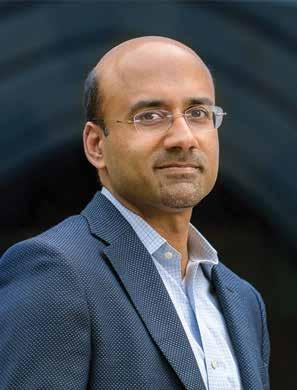
2 minute read
Message from the Director
Ten years ago, the Julis-Rabinowitz Center was founded in the wake of a major global financial crisis. As the Center marks its tenth anniversary, the world is, again, in another period of economic and social turmoil. True to its mission, the Center’s contributions are proving to be more relevant than ever to current policy debates. A column by Martin Wolf in the Financial Times highlighted research on the global rise in public and private debt and draws on our findings to suggest policies that will reduce incentives to borrow. Another article in The Economist drew on our work linking low interest rates, indebted demand, structural inequality, and weak growth, to call for a rethink of the existing macroeconomic paradigm. The focus of this year’s annual conference is the new thinking and structural changes required to heal the big economic and social fractures of our time.
The Covid-19 pandemic has also tested the Center’s resilience in the ways we work, collaborate and teach. Following the rapid shift to an online university in spring 2020, the Center’s faculty and staff have continued to push forward with research, teaching and student programs, finding innovative solutions to the challenges of remote work. With a grant from the National Science Foundation, we were able to expand the predoctoral training program and support the ongoing work of the Macrofinance Lab. Last year’s cohort of predoctoral research associates entered doctoral programs at MIT, Northwestern and Stanford. In fall 2020, we remotely onboarded three new predocs, as well as a new postdoctoral associate, Jonathon Hazell, whose work focuses on labor markets and macroeconomics. Former postdoctoral associate Andres Sarto joined the faculty at NYU Stern. To diversify the pipeline for young scholars in the fields of economics and finance, the Center is collaborating with the African School of Economics to host visiting research scholars at Princeton and recruit from a more diverse pool for the predoctoral program.
Over the last year, student and alumni engagement with the Center has grown. The Center’s Student Associates program, now at 167 members, serves as a virtual community connecting students scattered around the world. With the support of Center staff, student leaders organized a virtual career day, peer-mentoring, and alumni outreach activities that not only provided valuable skills but also fostered morale. Several young alumni also came together to launch a new JRCPPF Alumni Forum, which will not only strengthen alumni engagement with the Center, but also build bridges between current students, concerned about career prospects, and our growing group of alumni.
This report highlights the Center’s activities over the past year. As the Julis-Rabinowitz Center enters its second decade, I am grateful for your continued support and guidance.
Atif Mian Director, Julis-Rabinowitz Center for Public Policy & Finance John H. Laporte, Jr. Class of 1967 Professor of Economics, Public Policy and Finance









